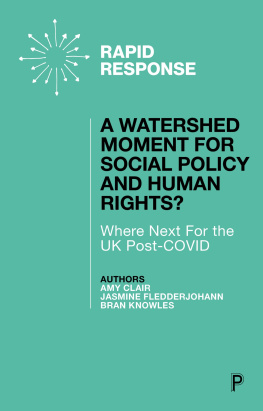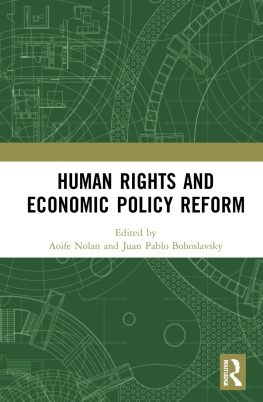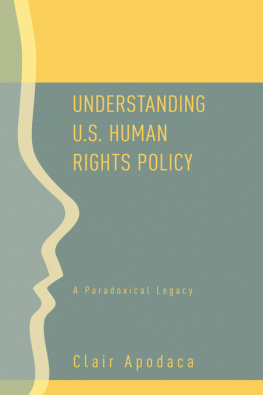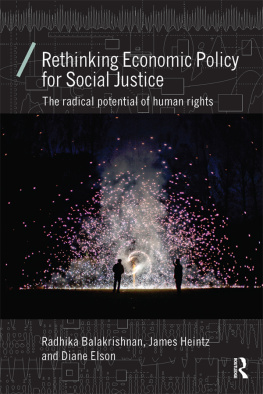First published in Great Britain in 2021 by
Policy Press
University of Bristol
1-9 Old Park Hill
Bristol
BS2 8BB
UK
t: +44 (0)117 954 5940
pp-info@bristol.ac.uk
www.policypress.co.uk
Bristol University Press 2021
British Library Cataloguing in Publication Data
A catalogue record for this book is available from the British Library
ISBN 978-1-4473-6384-2 ePub
ISBN 978-1-4473-6385-9 ePdf
The right of Amy Clair, Jasmine Fledderjohann, and Bran Knowles to be identified as authors of this work has been asserted by them in accordance with the Copyright, Designs and Patents Act 1988.
All rights reserved: no part of this publication may be reproduced, stored in a retrieval system, or transmitted in any form or by any means, electronic, mechanical, photocopying, recording, or otherwise without the prior permission of Policy Press.
The statements and opinions contained within this publication are solely those of the authors and not of the University of Bristol or Policy Press. The University of Bristol and Policy Press disclaim responsibility for any injury to persons or property resulting from any material published in this publication.
Policy Press works to counter discrimination on grounds of gender, race, disability, age and sexuality.
Acknowledgements
Amy
I would like to dedicate this book to my Grandad who passed away while we were working on our book proposal. He ensured that I had plenty of opportunities to practice debating policy and politics from a young age and would be proud that these debates have made it into book format.
Amy is funded by the ESRC Research Centre on Micro-Social Change (MiSoC) at the University of Essex [ES/S012486/1].
Jasmine
Jasmine is grateful for the encouragement offered by her family and friends through the writing of this book, not least of which came in the form of care packages containing implements for facilitating writerly impulses. She particularly wishes to thank her husband for useful and supportive responses to her endless impassioned monologues about the content of this book during its development and drafting. Jasmine received generous support from a UKRI Future Leaders Fellowship [grant number MR/T021950/1], without which this work would not have been possible.
Bran
Bran would like to thank her family for their love and support, especially during this difficult year. She would like to thank in particular her husband for his resolute calm and humour in the face of turbulence. She would also like to dedicate this book to her children, whose generation has inherited a number of overlapping challenges they must somehow find the strength to resolve.
Human rights, social policy and the COVID-19 pandemic
The COVID-19 pandemic has caused unprecedented global disruption. In this book we explore what the pandemic has shown us about ideology, social policy, and human rights in Global Minority countries. We focus particularly on the UK and US, and on the policy areas of health, food, housing, and technology. The problems we discuss are inherently political they have political causes and political solutions. For this reason, we focus on the political ideology that has shaped our policy landscape neoliberalism and countries that have pursued a neoliberal agenda to a great extent. We propose that ideological changes are an essential prerequisite for a well-planned, equitable, and just system going forward. Without such an explicit consideration of motivations and ideological underpinnings, future policies may fail in their goals, or, perhaps worse, set harmful and unethical goals.
COVID-19 is a timely and salient example of how some states have failed both to plan for a pending disaster and to equitably meet peoples needs up to and throughout the disaster. As cogently argues, framing disasters COVID-19 included as sudden, unpredictable, and often natural events which have disrupted an otherwise well-functioning system ignores the systematic marginalisation of people whose needs have been long-neglected by the state, and further obfuscates how that neglect led directly to disaster. In this view, disasters are not simply the result of external hazards indeed, the external nature of hazards themselves are subject to debate, as human action often directly or indirectly creates conditions for hazards nor even of social risk factors in isolation; rather, inequitable social structures systematically devalue the lives and contributions of some groups of people, leaving these devalued people to bear the brunt of hazards with little to no state support, thereby creating disastrous social conditions. As Illner asserts, such structural inequities are only resolvable through large-scale systemic change.
Social policy, evidence, and ideology: from human rights to neoliberalism and back again
The 1940s are often considered the beginning of a golden age of social policy and human rights. Significant developments such as the Beveridge Report (in the UK), New Deal (in the USA), and Universal Declaration of Human Rights (UDHR) arose during this time. It is often portrayed as a period of consensus around the role of government in meeting human needs, based on the idea of shared citizenship and supported by a population moved by their experience of World War II (WWII, although this framing is not universally accepted). The Beveridge Report, published in 1942, was the foundation for significant developments in the welfare state in the UK. Building on the progress of the interwar period, the Beveridge report sought to revolutionise policy and tackle the 5 Giant Evils: want, disease, ignorance, squalor, and idleness (crudely: poverty, health, education, housing, and employment), including through the establishment of a national minimum (). We focus particularly on Article 25, which states:
Everyone has the right to a standard of living adequate for the health and well-being of himself and of his family, including food, clothing, housing and medical care and necessary social services, and the right to security in the event of unemployment, sickness, disability, widowhood, old age or other lack of livelihood in circumstances beyond his control.
()
Importantly, the Article explicitly specifies that these rights must be realised even when ones livelihood is threatened by illness or structural forces, and in that respect is similar to the Beveridge Report. The UN Economic and Social Council has subsequently clarified the rights articulated in the UDHR, including through the publication of a series of General Comments from the Committee on Economic, Social, and Cultural Rights (CESCR) detailing the scope of these rights and the obligations placed on states for achieving their realisation. We discuss the relevant Comments in the following chapters.
Although the right to food, clothing, housing, medical care, and necessary social services was embedded in the Article 25 of the UDHR, these rights were not officially ratified in the UK until it signed the International Covenant on Economic, Social, and Cultural Rights (ICESCR) in May of 1976,, a state under the supervision of the market rather than a market supervised by the state.
Neoliberalism emphasises individual responsibility over state responses and causes, identifies those deserving and undeserving of support, with the deserving becoming an ever-smaller group, and, as far as possible, reimagines the role of the state as facilitator rather than provider. It advocates minimal state spending on social interventions, arguing that the state is not suited to the role, and that the market, left to its own devices, will provide optimal solutions. As a result, neoliberal approaches remove regulations on businesses and cut social expenditure, regardless of costs this will incur elsewhere. Under this model, social assistance), fundamentally undermining the ability of individuals and the state to respond to any kind of crisis.








